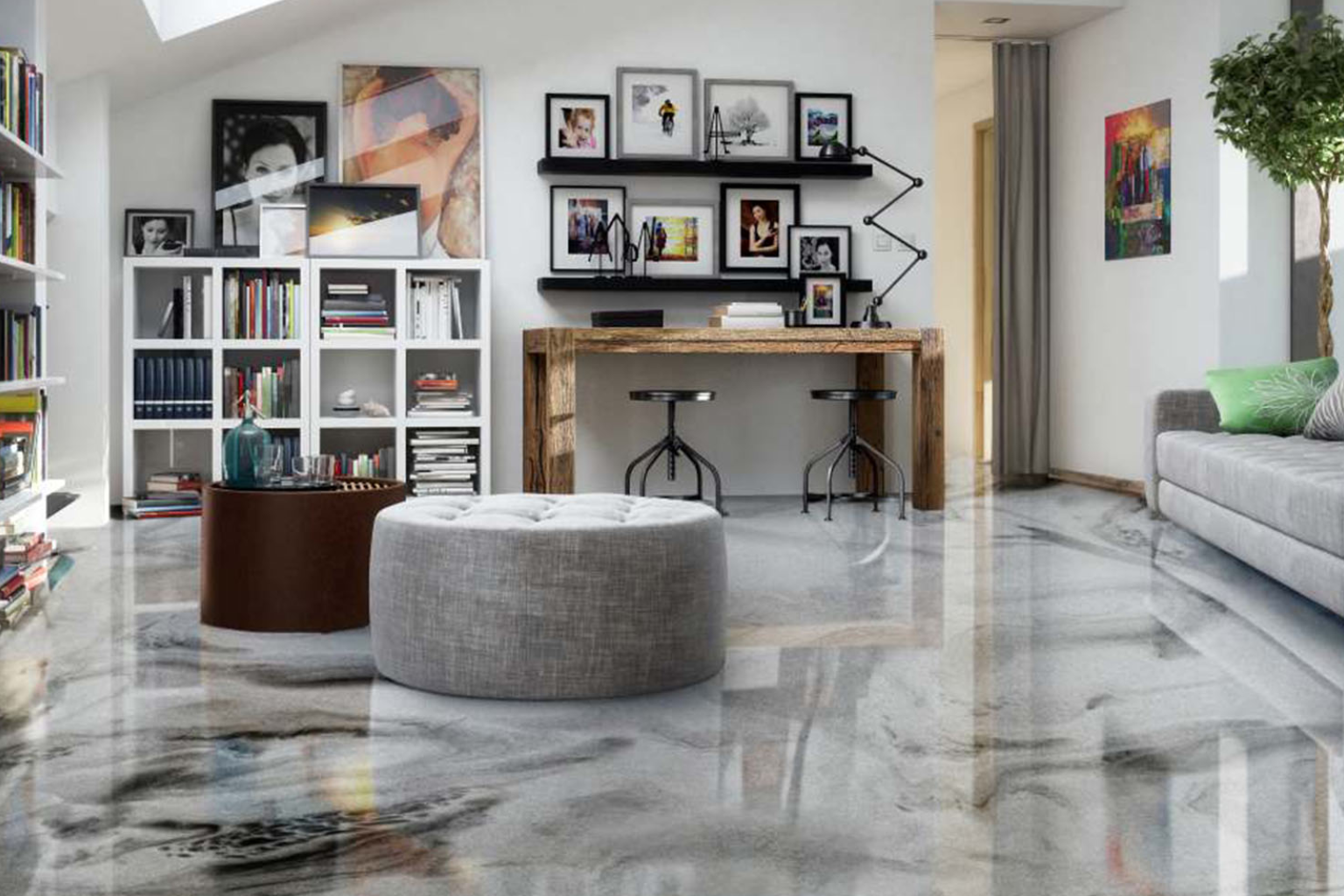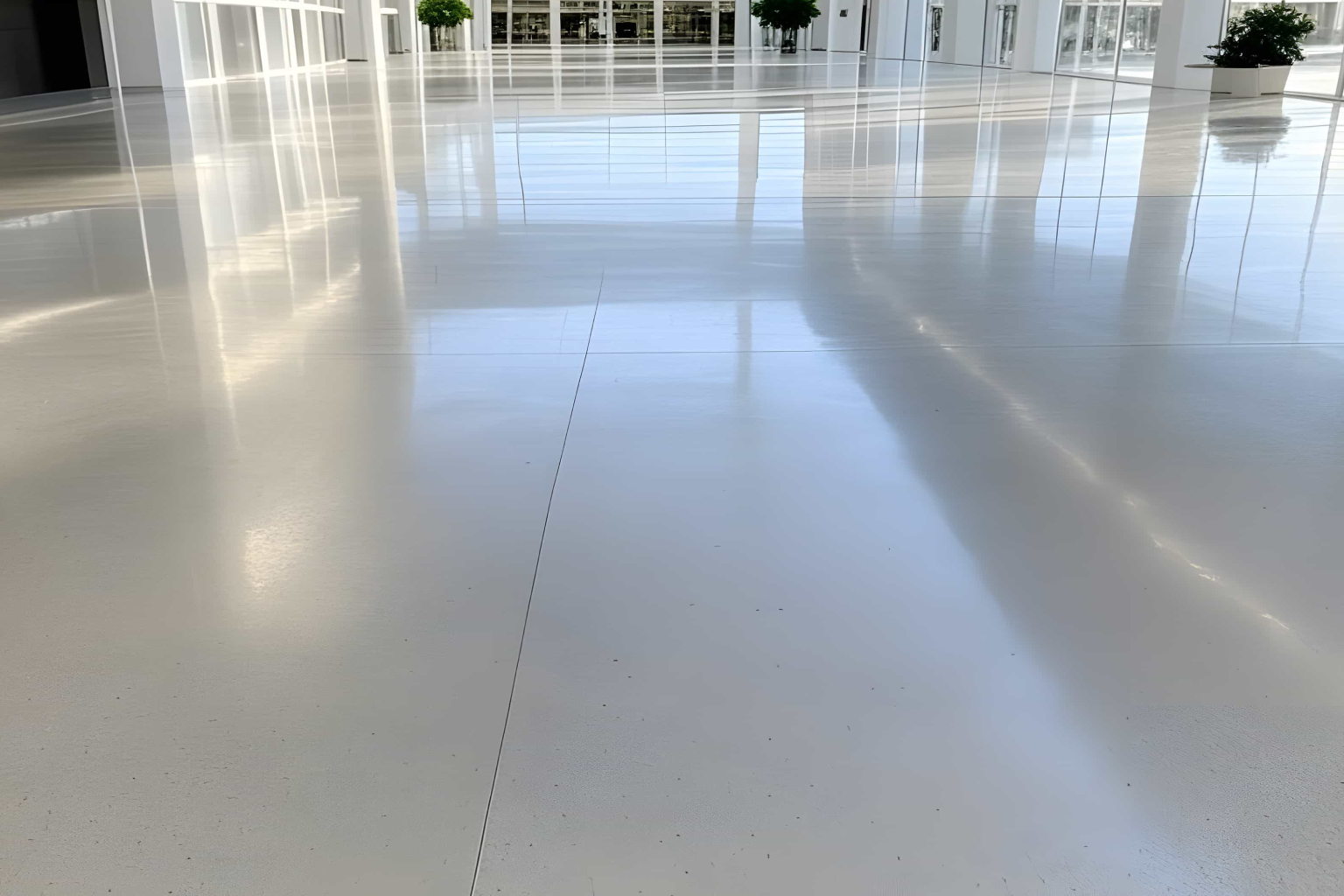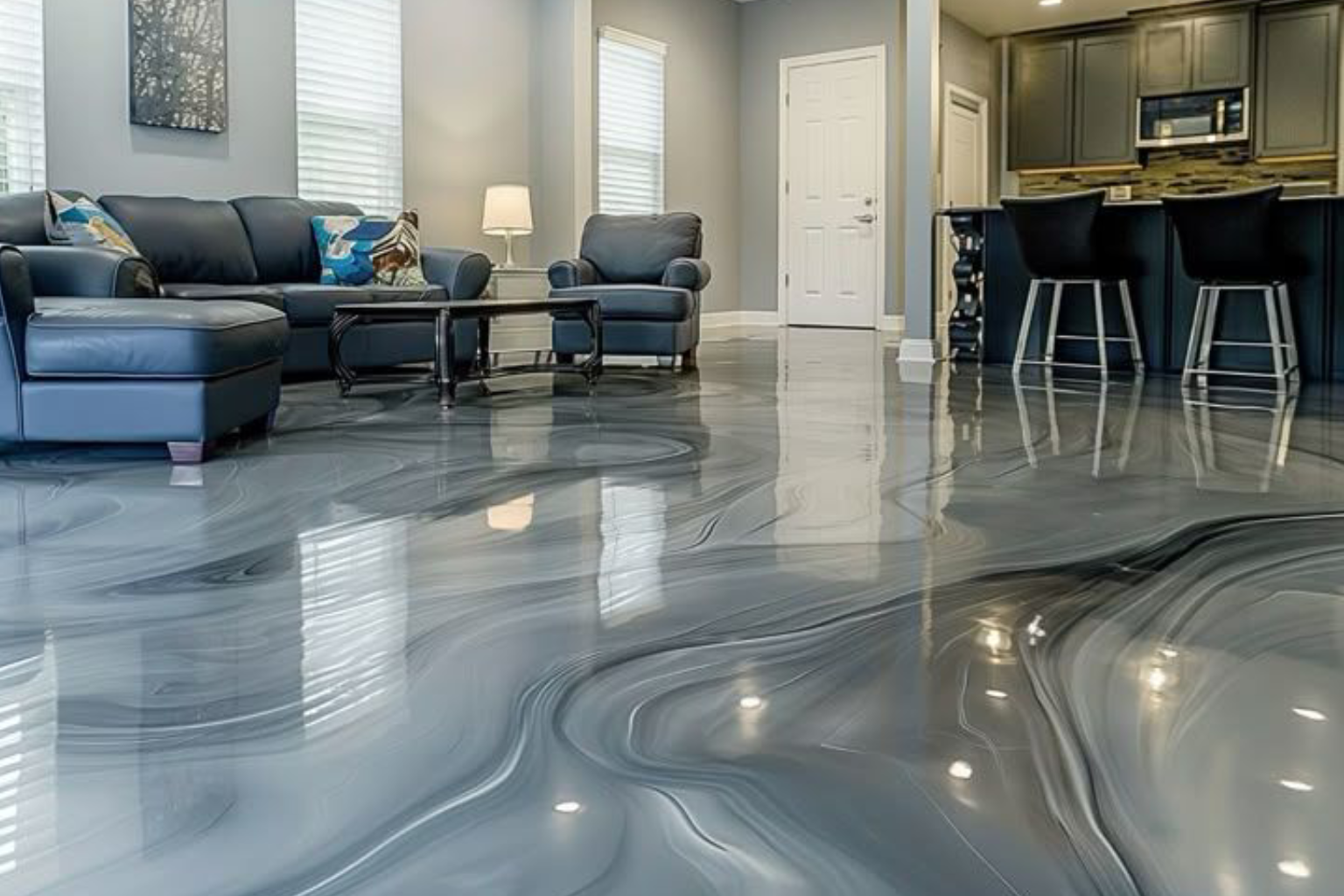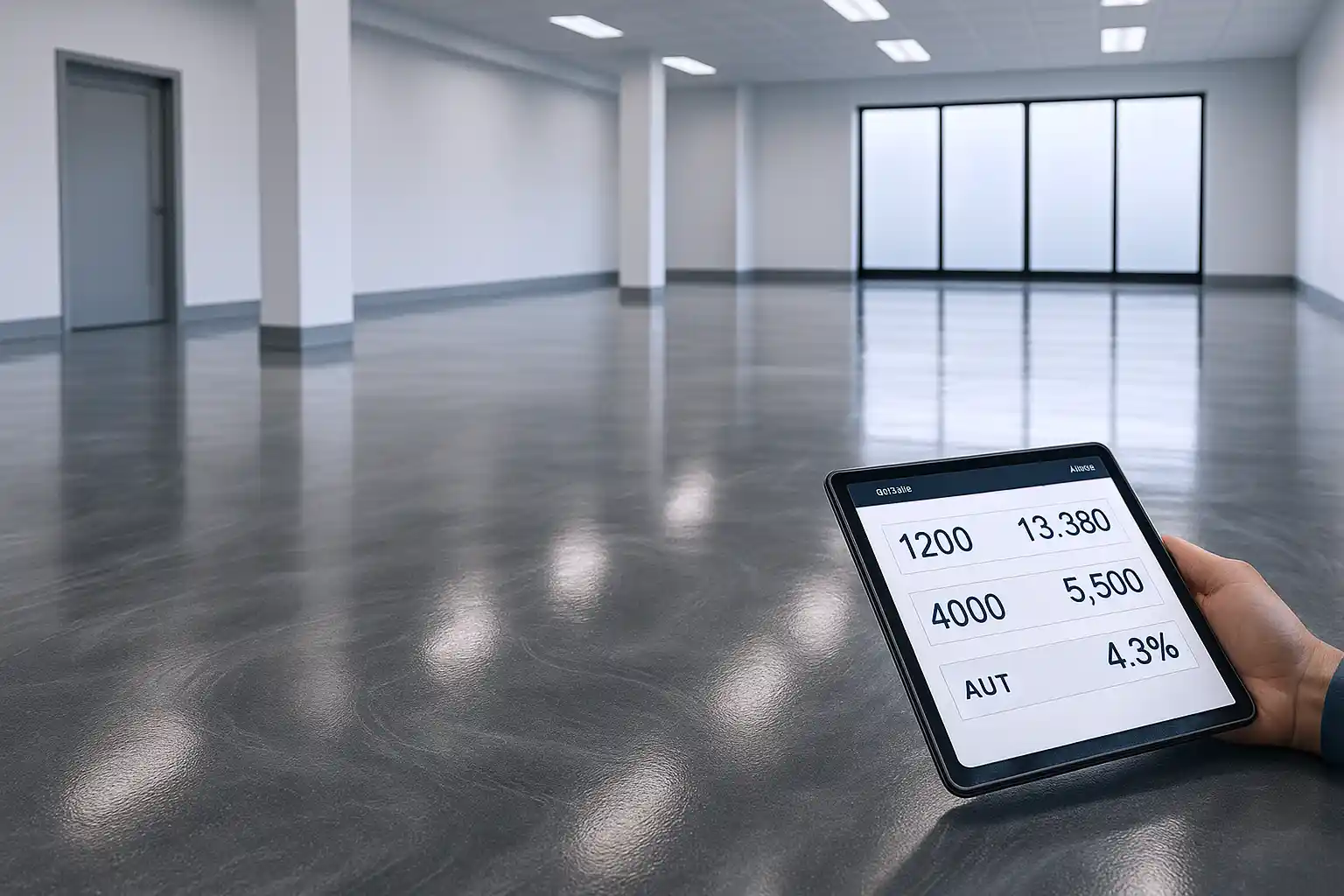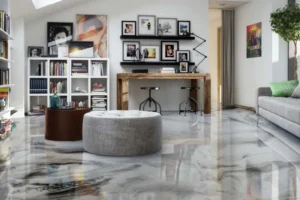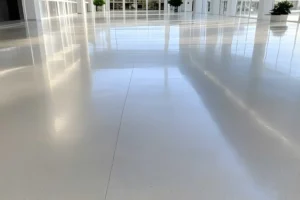Epoxy flooring is a durable and shiny surface made by mixing a resin with a hardening agent. It is applied over concrete to create a smooth and clean-looking surface.
Homeowners find epoxy flooring appealing for its durability, easy cleaning, and good looks. Businesses that use epoxy flooring will likely do so for high-traffic areas and heavy equipment use due to its durability.
All this comes at a price, so the main question is: how much does epoxy cost? In this article, we’ll break down the epoxy flooring cost.
The price varies based on materials, cost of labor, and level of durability compared to past years. With this detailed guide, you can decide which flooring options work best in your space at the optimal budget.
How Much Does Average Epoxy Flooring Cost in 2025
Epoxy floor prices change based on the finish, area size, and installer. In 2025, pricing has increased somewhat, mainly due to higher material and labor costs. Still, epoxy flooring remains a strong and reliable choice for both homes and businesses.
Understanding typical costs can help you manage your budget more easily. Nobody likes surprises when it comes to spending money. Let’s look at the current price ranges and what affects them.
Expected Price Trends Compared to Previous Years
As the demand grows significantly, the prices of epoxy slightly trend higher compared to the previous years. The price ranges are generally for epoxy flooring cost per square foot is around $5-12 ft square foot.
Cost by Finish Quality
The cost of epoxy flooring depends greatly on the kind of look and material you pick.
- The lowest price options are basic finishes, such as water-based or solid color epoxy. The cost ranges from around $3 to $7 per sq ft. These finishes work well in simple spaces, like utility rooms and garages, where appearance is not critical to everyday use.
- Mid-grade finishes, such as flakes or quartz blends, are generally priced from about $8.00 to $12.00 per square foot. The interior epoxy flooring cost in this range is ideal for spaces with high foot traffic.
- Premium finishes, including metallic and custom design options, are the most expensive, ranging from $13.00 to $25.00 per square foot. The decorative epoxy flooring cost is higher but ideal for hotels, restaurants, offices, and executive areas.
| Finish Level | Price Range (per ft square) | Typical Applications |
| Basic | $3–$7 (water-based or solid) | Garages, utility areas |
| Mid‑Range | $8–$12 (flakes, quartz blends) | Decorative garage/basement |
| High‑End | $13–$25 (metallic, custom work) | Showrooms, high-traffic commercial |
Cost Considerations of Epoxy Flooring
The price of epoxy flooring can change for many reasons. Below are the key things you should consider before starting your project.
1. Size of Area
The larger the area, the more it’s going to cost overall to cover. But sometimes, bigger projects cost less per square foot because materials are bought in bulk and setup is done only once. For example, if you are getting a small garage done, you might be paying more per square foot than for a large warehouse job because of setup and labor costs.
2. Epoxy Type
There are several types of epoxy, which also come with different prices. The resin flooring cost is a big factor here, as higher-quality resins make the flooring stronger and more durable.
- Water-Based Epoxy: Budget-friendly and simple to use, but it doesn’t last as long as other types.
- Solvent-Based Epoxy: More durable, but has strong fumes.
- 100% Solids Epoxy: Very hard and long-lasting, often used in high-traffic areas. This is the most expensive.
Overall, the epoxy resin flooring cost will vary depending on the type you choose and the durability you need.
3. Floor Condition and Preparation
Before applying epoxy, the surface must be properly cleaned and made even for the best results. If your floor has cracks, stains, or moisture, it will need to be repaired before the installation of epoxy. Prep work could involve patching holes, grinding, or sealing. This adds to the cost.
4. Complexity of Design
The cheapest option is a simple, one-color epoxy. If you want some special designs, the cost will increase. You can add:
- Color Flakes
- Metallic finishes
- Custom patterns
These styles look great, but take more time and effort to install.
5. Indoor or outdoor use
Indoor epoxy floors are usually easier to install because the environment is controlled. Outdoor epoxy may need an additional protective barrier for the weather, sunlight, moisture, etc. This would incur more costs, especially with patios or driveways.
Tip: Always consult a flooring professional regarding your space and needs. They will give you a more precise estimate based on this information.
Epoxy Flooring Cost Based on Application Type
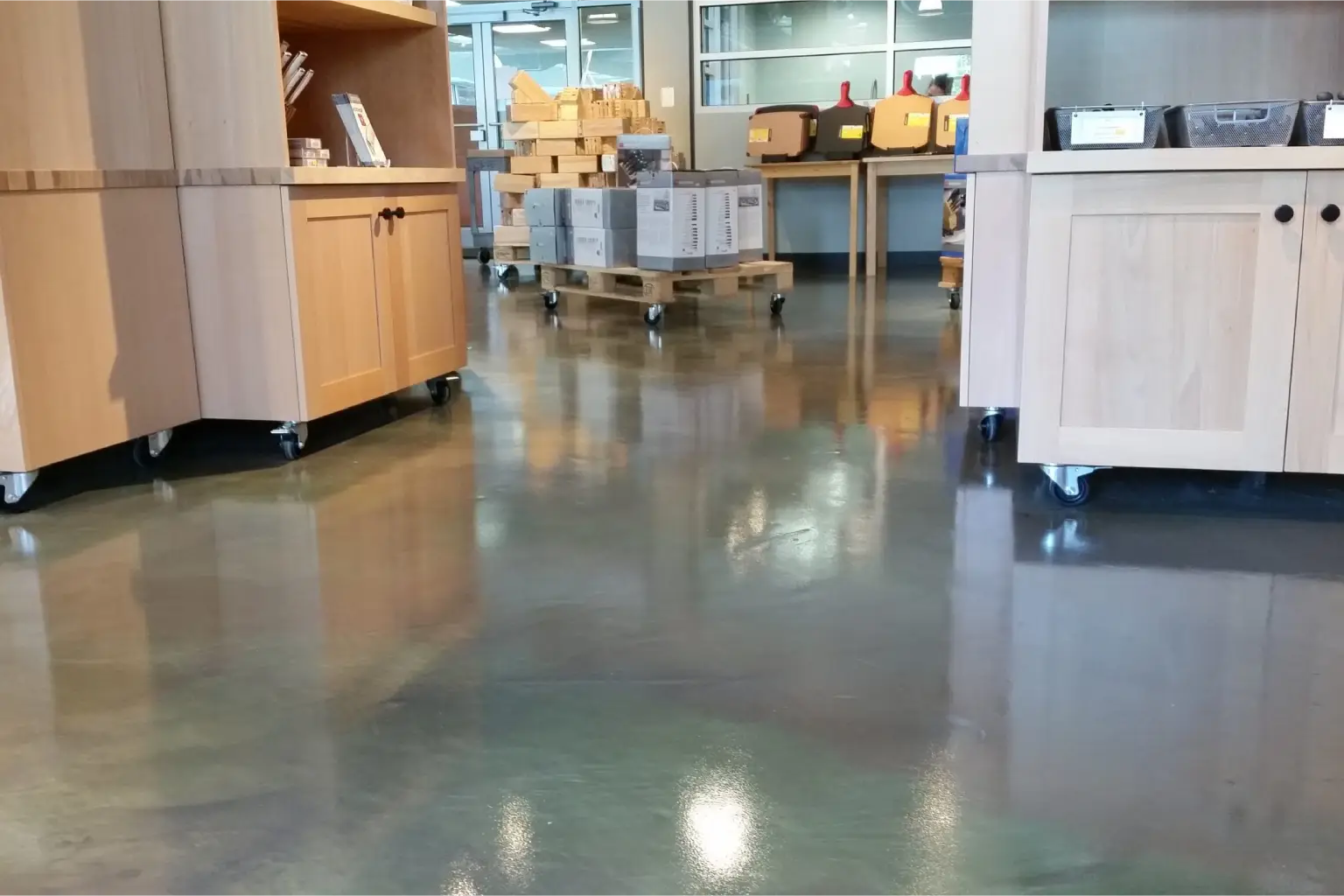
Epoxy flooring prices can vary in cost depending on where they are used. In homes, it is typically found in garages, basements, and kitchens, and epoxy flooring for homes cost is around $3 to $9 per square foot. Commercial epoxy floor cost for spaces, such as shops and offices, can range in cost from $6 to $12 per square foot due to traffic and custom design.
Industrial spaces, such as warehouses and factories, require even stronger coatings. The industrial epoxy floor coating cost per square foot is usually $8 to $15 Outdoor areas, such as patios and driveways, require UV protection and typically cost $7 to $13 per square foot.
For residential applications, the cost varies based on the particular residential space. For spaces such as garages and basements, the residential epoxy flooring cost remains a bit higher compared to living rooms and kitchen. That’s because areas like garages require extreme durability as they have to withstand high traffic. Each space requires different preparation efforts and materials, which can affect the final price.
Long-Term Value and Maintenance
Epoxy floors are designed to endure for years. They work in both residential and commercial settings. They’re stain-resistant, crack-resistant, and water-resistant, which makes them low-maintenance surfaces that stay looking fresh. Epoxy flooring costs are typically lower than commercial, but both are a great value for their longevity.
Cleaning epoxy floors is easy. Simply sweep and mop them regularly; they don’t require special cleaners or tools. If something does happen, minor repairs are easy and cheap.
Because epoxy floors are long-lasting and require little care, they save you money over time, and this is why many people consider them a smart, long-term investment.
Money Saving Tips for Epoxy Flooring
- Get multiple quotes from contractors to make comparisons.
- Pick a simple design instead of custom colors or patterns.
- If you can, reduce the epoxy floor coatings cost by preparing the floor in advance, cleaning it, or removing old coatings yourself.
- Pick the best type of epoxy for your needs and avoid paying for features that you don’t need.
- Purchase during offseasons or ask contractors about Discounts.
Conclusion
Epoxy floors are a strong, long-lasting, and stylish choice for homes and businesses. In 2025, prices may be a bit higher, but its intrinsic value over the long term makes it well worth it. Once you know what affects the floor cost, you can plan better. This helps you stay on budget and enjoy a strong surface for many years.



